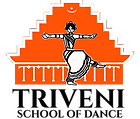
Connecting Cultures through Divine Rhythms
4/27/2008, Arthi Devarajan
It is often said that art can transport you to another place and time. A recent Boston dance performance did exactly, that, providing its audience a very moving and transformative experience as it brought together the worlds of classical Indian dance, international music, religion and spirituality, women’s lives, social outreach, and the intersection of cultures.
On Sunday, April 13, 2008, the Triveni School of Dance in Brookline, Massachusetts, presented a showcase of classical Indian dance items by Neena Gulati, Triveni’s founder and principal instructor, and her senior, professional-caliber students. The performance, titled “Divine Rhythms: The Joyful Spirituality of Indian Classical Dance,” was sponsored by the Massachusetts Cultural Council, and served as a benefit concert for Liz Walker
Journey Productions, a local charitable initiative. Founded by Boston-based broadcast journalist and ordained
minister Rev. Liz Walker, this organization is currently pursuing non-profit work in the Sudan, with the aim of building a school for girls in Darfur.
The Triveni School of Dance is recognized widely for its detailed and rigorous instruction in three styles of classical Indian dance: Odissi, Bharata Natyam and Kuchipudi. Students presented intricate pieces in all three styles of dance, with elaborate choreographies and stagings arranged specially for this program.
Some pieces presented this evening included “Pada Vande,” an Odissi piece offering praise to the Hindu lord of beginnings, Ganesha, with devotional gestures and expression. An item entitled “Shudh Nritta” featured vibrant nritta, or pure dance sequences, replete with rhythm, sharp movements and fast-paced energy. “Das Avatar” entailed lyrical and narrative movements to regale the audience with tales of the ten incarnations of Lord Vishnu, preserver of the universe. “Sandhi Nritya” provided the audience with a new and innovative glimpse at classical dance, as dancers invoked the techniques of Odissi and Kuchipudi while set to contemporary Western music – the New Age rhythmic stylings of the musical group “Enigma.” The program concluded with a piece that once again entailed a fusion of classical dance styles and non-traditional music. Set to the Indian contemporary song “Mangalam” by Prem Joshua, this finale piece went further in its scope to provide audiences with vignettes and symbols from three major world religions: Hinduism, Islam and Christianity. Dancers provided poses that reflected images of Hindu divinities; they demonstrated elements of nature such as water, wind and the moon to represent Islam and the creation attributed to the Divine; and finally they depicted animals from Biblical myth, such as the serpent, the phoenix and the lion of God to represent Christianity.
Throughout the evening, each piece was presented to the audience with its own energy and attitude; the atmosphere of the auditorium was dynamic, changing with each story and theme that would unfold on stage. The audience was captivated by the strong yet sensitive feminine energy of the Odissi pieces, the dramatic narratives and stylized gestures of Kuchipudi, and the sharp execution and colorful energies of Bharata Natyam. It was a joy to witness these features of the dance styles as they came together in the fusion items, creating something new for the audience while retaining the integrity of each classical dance movement.
The program featured a short interlude wherein Rev. Liz Walker and her mentor, Rev. Dr. Gloria White-Hammond, presented a short talk about their work in Darfur, as well as a brief film clip which gave the audience a chance to see the community that would be benefited through this dance program. Following this presentation came a special set of dance pieces choreographed by Neena Gulati and two of her dedicated senior students, to provide an artistic link in the evening between the images of Indian classical dance, and the compassionate outreach toward those in need in the Sudan. The item “Poetry and Dance” was presented in honor of Rev. Liz Walker, and Rev. Gloria White-Hammond, two women who are heading the initiatives in the Sudan to build a girls’ school. This piece set Kuchipudi movements to the soulful poem “A Glory from the God” by Rev. Dr. Cecelia Bryant, and the exhilarating Gospel song “We Are Connected,” by the Berklee College of Music’s Gospel choir. These pieces drew thunderous applause and smiles of appreciation from its honorees, who commented emotionally about the touching gesture of using Indian cultural dance to reach out in support to another culture and people in Sudan. Rev. Gloria White-Hammond also recognized the students, mostly girls and young women, who comprise the Triveni School of Dance. White-Hammond concluded her remarks by requesting all dance students in the audience to stand up and be recognized for their inherent beauty, talent, and value to society – an especially poignant moment in the evening, as literally dozens of girls stood. This moment was a testament to the hard work, dedication, and strong sense of community that is part of the Triveni School of Dance, and their close relationship to their teacher Neena Gulati, known lovingly as “Neenaji”.
Overall, the evening was successful in its goal, raising several thousand dollars to support the outreach initiatives in the Sudan and better women’s lives. But also worth noting is that the program proved to be a magical experience, transporting its audience with each piece and providing a broader vision for the possibilities of classical dance – in the multiple senses of artistic and creative inspiration, community outreach, and the chance to help others through dance and performance.
.png)


